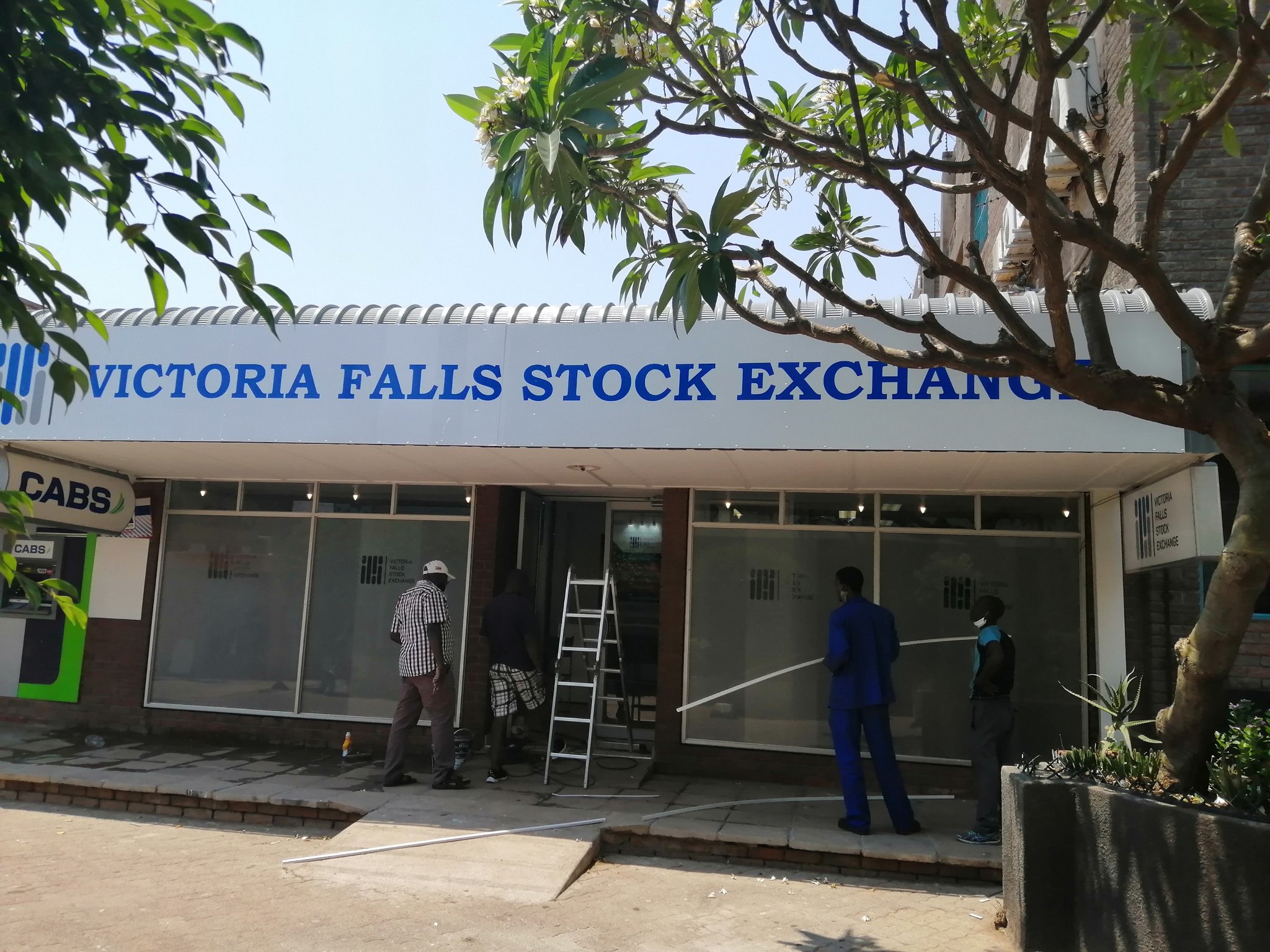CZI won through with sound arguments
The modifications of the taxation system being used to empanel industrialists and wholesalers as the major enforcers of a new drive to bring a large slice of the informal sector into the ranks of the registered taxpayers arose from a refreshing approach by both organised business and the Government.
Far too often in the past the line was laid down by the Treasury, and the private sector just complained.
Nothing was changed. This time a suddenly rejuvenated Confederation of Zimbabwe Industries came up with some detailed argument over the effect on distribution and value chains, and then added in practical proposals over how to meet the Government’s desire to ensure that the informal sectors paid their share of taxes.
There was an element of waiting until the last possible minute by the CZI, rather than coming up with the arguments and proposals within a couple of weeks of the budget announcement, but perhaps their actual implementation, and the confusion in some manufacturing circles, helped refine the ideas.
Minister of Finance, Economic Development and Investment Promotion Mthuli Ncube came up in his Budget statement with a plan to push the businesses in the informal sector to register with Zimra.
This would include the owners registering as sole traders, an advantage for the owners of little businesses since they win from the tax-free income tax band plus the low-rate bands.
It is only as businesses grow that formation of a company becomes a tax advantage, along of course with the limited liability as financing becomes more complex.
The actual income tax paid by many in the informal sector, even if they kept reasonable accounts and correctly calculated their income tax, would be very little, and the smaller vendors and stallholders would probably find their profits inside the tax-free band.
But they would be in Zimra’s database and once there it is difficult to get out. So as the business grew Zimra would have their collection tin out.
The other move was the drastic reduction in the turnover level to become liable for VAT registration, down to just US$25 000, just over US$2 000 a month on average and that will bring a lot of small businesses within the orbit of VAT.
They will not only need to register, and pay VAT on the final value addition made at the retail end, but will need to have equipment that meets Zimra’s fiscalisation standards. Minister Ncube also wanted the micro-businesses licensed by their local authority.
Sending inspectors tramping around looking for micro-businesses would first of all be expensive and secondly miss many, so the minister decided to get the enforcing done when they need to buy the goods that they retail, that is when they buy from wholesalers and manufacturers.
The new rules said manufacturers could only sell to licensed, tax compliant businesses registered for VAT, and wholesalers could only sell to licensed and tax compliant businesses.
The first modifications came in the final legislation which allowed wholesalers to sell up to US$1000 of goods a month to a micro-business without seeing the tax clearance certificate, so at least the vendors and stallholders were off the radar for a while.
In theory this enforcement via the supply gate was a good idea, but to move from where were are to where we want to be is not so easy, and in some cases there were some very practical problems, not only in getting all the paperwork done for a huge number of micro-businesses.
While wholesalers were not particularly fussed by the new moves to make them enforcers, although they saw some reduction of business, the manufacturers felt they could be seriously damaged considering how much of distribution was now direct from factory to shop.
The CZI was used to spearhead the reaction and to work out possible alternatives that would fulfil the Minister’s requirements while not freezing the distribution system now operating. CZI, for example, suggested a 3 percent VAT presumptive tax should be charged by manufacturers selling to retailers without tax clearance and not registered for VAT which they thought would cover the VAT on the value added at the retail stage.
A technical committee within the Treasury started detailed talks with the business sectors, led by the CZI, and the arguments of the manufacturers were largely accepted, with a pure enforcer role not really being practical at this stage without disrupting a large chunk of the retail trade.
But because the objections had also been accompanied by practical suggestions to gather the necessary taxes, and encourage registration with Zimra, a deal was possible.
Fresh food, such as meat and bread, can now be sold directly by manufacturers to retailers. This, to a large degree, has always been the case with at one stage bakers actually selling directly to the public using tricycle salesmen. Obviously going through a middle wholesaler stage simply puts in delays that can spoil food.
The idea of the presumptive tax was attractive, but not the three percent. This would be on the factory gate price, and would imply that the retail mark-up was only around 15 percent at the most, which is obviously unrealistic.
VAT at each stage in the value chain is calculated as what would be the 15 percent on the price that it leaves that stage, minus the VAT already paid by those in the earlier stages of the chain.
The Finance Ministry went for five percent, implying something closer to 25 percent for the retail mark-up.
That, in the highly competitive and shortage free environment at present might be slightly on the high side, but the Government was also keen to get some of the potential income tax.
In any case a presumptive tax needs to be slightly higher than what a registered and tax compliant taxpayer would pay, to encourage people to register so as to save money.
Minister Ncube in his statement noted that the problem of rural stores, which are often very small with very modest turnovers, would not be as big a problem as some in the wholesale and manufacturing sectors suggested.
For a start almost all use wholesalers, since these deliver, and when turnover rises as farmers become richer there tends to be new businesses opened, increasing the density of the retail trade. So the US$1000 a month will probably work for a while.
However, we are likely to see, and perhaps are already seeing in the tobacco belt, rural stores getting bigger than that, but they can manage by registering with Zimra. VAT registration is not needed for dealing with a wholesaler.
Zimra might well need to advance their own systems so that registration can be done on a smartphone with little data use, and some sort of app created that will allow for simple calculations of tax and simple generation of a certificate of compliance.
When you are dealing with a small business high levels of complexity cannot be insisted upon. But Zimra has been making significant advances in being user friendly with low levels of input from expensive staff, so this can be advanced.
The Minister himself saw the need for basic services for the microbusiness sector, wanting local authorities to come up with a very simple and affordable licence for vendors.
Harare used to have such a licence, a hawker’s licence, but there now needs to be something similar that also has an address for a market stall or something similar.
Modern database technology means that records can be digital, and searchable, and thus it should be possible to bring in the vast informal sector into the formal economy at low cost to both those who need to buy licences and register with Zimra, and to those who do the licensing and registration.
There will still need to be inspections, but again it is possible to legislate for a very simple bookkeeping for very small businesses that can be examined in a few minutes and checked. Obviously this sort of random checking cannot be even 10 percent, let alone a 100 percent, but some auditing would keep the pressure on microbusinesses.
It should be noted that the Pfumvudza programme insists on record keeping by small farmers who get those free inputs, nothing complicated but the application for the next year needs the extension worker to see the records.
With the practical relationship between the Finance Ministry and the business sectors now growing, there is also a responsibility on the CZI and others to appreciate the Government goal of a tax compliant nation, and continue to come up with ideas that will make that goal attainable, and so help spread the burden to shoulders other than their own.
The revitalisation of the CZI is also exceptionally welcome and hopefully this will see a lot of those manufacturers who ceased being members, or who never bothered joining, will now reconsider.-ebsuinsssweekly












